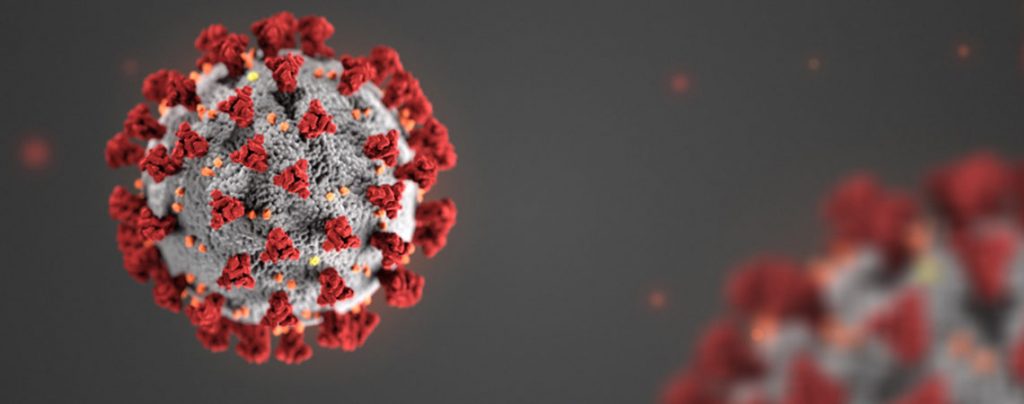It has now been approximately a year and a half since Massachusetts had its first case of SARS-COV-2 – also known as COVID-19 – infection. The Commonwealth has seen over 700,000 infections and almost 18,000 deaths linked to COVID-19 during this pandemic; both are staggering figures that have reminded all of us of how frail life can be, how health disparities still persist and lead to disproportionately worse health outcomes in communities of color, and of how important it is to have strong public health systems in all cities and towns.
None of us likely imagined we would find ourselves halfway through 2021 and still grappling with this seemingly unstoppable virus. Despite our weariness from battles fought, through surge after surge, we must still be vigilant, cooperative, and hopeful. Here are some timely and relevant points I’d like to share with all of you about the current state of the pandemic.
The Delta variant: This is the predominant strain of COVID-19 virus currently affecting most countries, including the United States. Compared to previous variants, the Delta variant spreads much more easily, especially among the unvaccinated. There is no clear evidence to show that the Delta variant is more lethal, but COVID-19 related deaths are on the rise – especially in parts of the U.S. and the world where vaccination rates are lowest – because the infection rate is booming. Vaccination rates are high in Massachusetts (66%), so we are not seeing critical hospital bed shortages or a rise in COVID-19 related deaths the way that other parts of the country are experiencing right now. However, one third of the vaccine-eligible population of the state is still unvaccinated, so we still have work to do to make sure we prevent more COVID-19 deaths or unnecessary strain on our health care infrastructure. The number one thing you can do to protect yourself from a serious or deadly Delta variant infection is to get fully vaccinated against COVID-19. Please call us at 617.927.6000 if you want to set up an appointment to get vaccinated or to talk to a medical provider about the vaccine. Please check out the state’s COVID-19 Vaccination website for more information.
Vaccine #3: The U.S. Food and Drug Administration (FDA) authorized a third dose of mRNA vaccine (Moderna or Pfizer) for certain patients who may not have achieved a sustained immune response from their initial vaccination(s). This is a very small group – about 3% of the total population. Studies show that a third dose can help people whose immune systems are weaker because of an underlying disease (such as untreated HIV), or because of certain medications they need to take in order to either treat other diseases (such as corticosteroids for autoimmune diseases) or prevent rejection of a solid organ transplant, or because they have had a stem cell or bone marrow transplant recently. Fenway Health continues to provide Moderna COVID-19 vaccine to patients and we invite you to call us at 617.927.6000 if you feel you are eligible for this third dose of vaccine. We will be outreaching to eligible patients in the next week. We are also working to secure Pfizer COVID-19 vaccine and will update patients once this is available. Please note: only those people who fit the moderate to severe immunosuppression criteria established by the U.S. Centers for Disease Control and Prevention (CDC) are eligible for an extra shot right now; the rest of us will get booster shots starting in late September and likely no sooner than eight months after our first COVID-19 vaccinations. We will send out more information about booster shots as we near that date. I extend a huge thank you to all of our patients who have gotten vaccinated – you are responsible for our state’s current low COVID-19 death rate, and you are saving lives!
The simple rules still work: I would be remiss not to remind you that the most unexciting advice is still the best advice, when it comes to COVID-19. Because the Delta variant is so contagious, we should continue to wear masks indoors among folks who don’t live with us (e.g. in a store, on the T) and outdoors in events where we cannot physically distance from others. We should practice hand hygiene regularly. We should stay home from work, seek COVID-19 testing, and obtain an in-person appointment at our Symptom Clinic Unit or a telehealth appointment with one of our wonderful medical providers when we are sick with COVID-19 symptoms. If we have not yet done so, we should complete our initial vaccination(s) against COVID-19.
It takes a village: So many people attached to Fenway Health – be they patients or staff – know a thing or two about survival. The HIV epidemic of the previous decades has taught us so much and challenged us in key ways. There are so many parallels that come to my mind about HIV and COVID-19. Some are very sad – the senseless loss of life, the moments of helplessness and isolation especially in the early days, the ruthlessness with which disease exploits disparities and causes greater harm to those marginalized by society. Other similarities make me feel hope – the ability for governments and scientific organizations to collaborate on vaccine and drug research, the acceleration to improvements that massive funding efforts enable, the compassion with which community members open their hearts and pitch in to keep individuals and institutions alive. The future will require us to remember these lessons.
Alex Gonzalez, MD, MPH
Medical Director, Fenway Health


